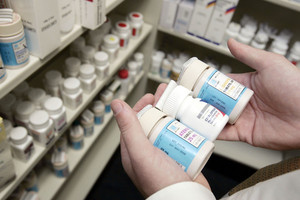Despite the availability of generic antiepileptic drugs (AEDs), patients and neurologists still hesitate to make a switch due to several reasons.
Substitution of generic antiepileptic drugs
Generics/Research
|
Posted 15/04/2016
 0
Post your comment
0
Post your comment

The objectives of this review were to evaluate the risks associated with the generics substitution of AEDs. In this context, author Muhammad Atif and colleagues from the Islamia University of Bahawalpur, Pakistan, summarized the recommendations of various international societies to treat epileptic patients.
A number of electronic databases were used to identify the relevant published studies that demonstrated potential problems and recommendations regarding generics substitution of AEDs. Of 204 articles found, 153 were initially selected for additional review. Subsequently, 68 articles were finally selected.
Review of the articles found that potential problems linked with the generics substitution of AEDs could be bioequivalence issues, failure of drug therapy, emergence of adverse events, and increase in the frequency of seizures. Reasons for these problems could be the pharmacokinetic properties of AEDs and the unique characteristics of some epilepsy patients. Consequently, the generics substitution of AEDs may affect the successful treatment and quality of life of some patients.
Various guidelines recommend well-controlled epileptic patients to avoid switching from brand-name to generic drug products, from generic to brand-name drug products, or indeed between generics from different manufacturers. The reason for this is mainly due to the unavailability of bioequivalence data and the potential risk of losing control over seizures.
Conflict of Interest
The authors of the research paper [1] declared that there were no conflicts of interest.
Abstracted by Muhammad Rehan Sarwar of the Department of Pharmacy, Faculty of Pharmacy and Alternative Medicine, The Islamia University of Bahawalpur, Bahawalpur, Punjab, Pakistan.
Editor’s comment
Readers interested to learn more about bioequivalence of narrow therapeutic index drugs are invited to visit www.gabi-journal.net to view the following manuscript published in GaBI Journal:
Bioequivalence of narrow therapeutic index drugs and immunosuppressives
Readers interested in contributing a research or perspective paper to GaBI Journal – an independent, peer reviewed academic journal – please send us your submission here.
Related article
Generic antiepileptic drugs bioequivalent to brand-name drugs
Reference
1. Atif M, Azeem M, Sarwar MR. Potential problems and recommendations regarding substitution of generic antiepileptic drugs: a systematic review of literature. Springerplus. 2016;5:182.
Permission granted to reproduce for personal and non-commercial use only. All other reproduction, copy or reprinting of all or part of any ‘Content’ found on this website is strictly prohibited without the prior consent of the publisher. Contact the publisher to obtain permission before redistributing.
Copyright – Unless otherwise stated all contents of this website are © 2016 Pro PharmaCommunications International. All Rights Reserved.
Most viewed articles
The best selling biotechnology drugs of 2008: the next biosimilars targets
Global biosimilars guideline development – EGA’s perspective
Related content
Japan’s drug shortage crisis: challenges and policy solutions
Saudi FDA drug approvals and GMP inspections: trend analysis
Generic medications in the Lebanese community: understanding and public perception
Community pharmacists’ understanding of generic and biosimilar drugs: Lebanon case study
Generic medications in the Lebanese community: understanding and public perception

Generics/Research Posted 23/01/2024
Community pharmacists’ understanding of generic and biosimilar drugs: Lebanon case study

Generics/Research Posted 08/09/2023
The best selling biotechnology drugs of 2008: the next biosimilars targets








Post your comment